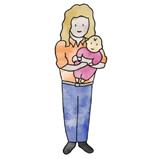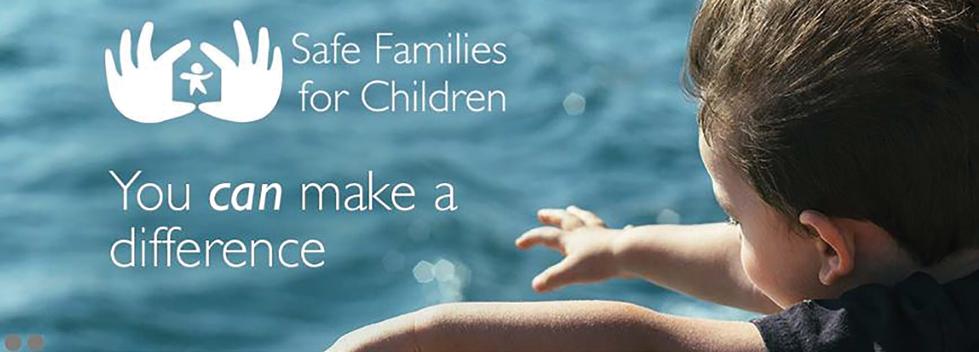
6 minute read
Safe Families

Dr. David Anderson, Founder & Executive Director of Safe Families Organization
Photo by Dick Morton
PROVIDING SHELTER FOR CHILDREN
Advertisement
Safe Families
BY SCOTT JONLICH
Dr. David Anderson was working 16 years ago at Mt. Sinai Hospital in Chicago with abused kids who were destined for foster-care. The psychologist started to think, “Why in the world do we wait for children to be harmed in our society, when we know that these families are in trouble? Why can’t we help them out?”
The Safe Families founder, husband and father of three developed an idea of recruiting volunteer families to take in children whose parents are in difficult situations.
“By taking them in and caring for them, we can give the parents space and time to help them get back on their feet, and ultimately have their children back with them again,” Anderson said.
Anderson decided to visit Chicago Mayor Richard M. Daley after a pivotal point in his life.
One day at Mt. Sinai, he was interviewing children who were abused, and met a five-year-old girl—almost the same age as his daughter.
“Her face was black and blue, and her retina was detached,” Anderson said. “Her brain was swelling, and her arm was broken. My job was to find out what happened, so I met with the mom, and she said she grew up in foster-care—she had no one else. [If] she would have missed one more day of work, she would have lost her job.”
Anderson recounted the terrible predicament the mother was in. Her daughter was sick, and she had no one else to turn to; so she called her exboyfriend. She later found out he was on drugs while she was at work.
“If someone was there to help her out, this wouldn’t have happened,” Anderson said. “The daughter was the same age as my daughter, and I just started thinking about what if that were to happen in my daughter; so I wrote a letter to Mayor Daley. ... I said, ‘I have this idea: we can recruit hundreds of families to take in children and create a safety-net for children, so if there’s ever a child that’s in [such a] difficult situation, there would be a family there for him.”
Daley listened to Anderson, and had a question for the determined doctor: “Is New York doing this?” Anderson immediately replied, “No; we could beat New York.” Daley proceeded to provide the funding for Anderson and his wife Karen to get started.
But first, Daley instructed Anderson to meet with the head of Department of Children and Family Services (DCFS) to “tell them that it’s the best idea I’ve ever heard.”
To Anderson’s surprise, DCFS told him the idea would never work, and “don’t bother wasting your time—you’ll be a failure.”
“Children are not valuable in our society, unless they’re your own, or unless you adopt them,” a DCFS agent told him. “There’s nobody looking out for someone else’s child, and if you were to be successful, you have to convince people and a large number to love and care for someone else’s child, and then give them back. People won’t do that unless they have an ability to keep them.”

The DCFS words troubled Anderson, but he never wavered.
Anderson often recalls the fate of the many girls and boys with similar fates as the 5-year-old girl he often thinks about. Many are infants without a certain future.
“Kids do need a safe place to stay,” he said. “The most common situation is a parent that is homeless or doesn’t have a regular place to stay. Domestic violence puts children in a place where there’s nowhere to go. Sometimes a very difficult economic for parents causes a stressful and unsafe environment.”
—DR. DAVID ANDERSON
About 75 percent of the children are below the age of 5. Oftentimes, their parent is homeless, or doesn’t have a regular place to stay.
“The common issue is social isolation—that they’re raising their kids and they have nobody else to turn to,” Anderson said. “It’s hard to even imagine not having a friend or relative that you could call and say, ‘Can you give me a hand?’—They have nobody.”
Anderson pointed out that host families normally will take in the child for six weeks on an average. While it seems like a short time, the healing and safety provided to the child can be life-changing. “Even though a child’s body might recover [from] the psychological impact of being harmed by someone who was supposed to care for them, the impact can go well beyond,” he said.
Anderson’s vision 16 years ago has a lasting effect for over 50,000 children and the families that cared for them. Today, more than 1,200 Safe-Families is sheltering children in 40 states cities, and has assisted in changing 17 laws to benefit children. The organization has also grown in the United Kingdom, where thousands of families are benefiting under their affiliation with local chapters.
“I don’t have any special skills, other than I have a family, and my house is a little bit bigger than maybe I need,” Anderson said. “It doesn’t cost me hardly anything to feed a kid for six weeks. [Host families] want to show their kids what it means to be caring for somebody else. It’s not all about them. We have a responsibility to give back. We’ve been blessed, and we can give back with money—we can give back with sharing our home.”
Anderson said anyone can provide a Safe-Families home by contacting 773-653-2200, or visiting www.safe-families.org. Companies and organizations can get involved by providing needed supplies such as diapers, clothing and everyday items. ■

A Circle of Support

Family Friends: Encourage and support host families and families in need

Family Coach: Help families in need reach their goals & provide encouragement to host families

Family in Crisis

Host Family: Voluntarily host children in your home on a temporary basis

Resource Friend Provide goods & services to families in need

A Safe Families' Church










